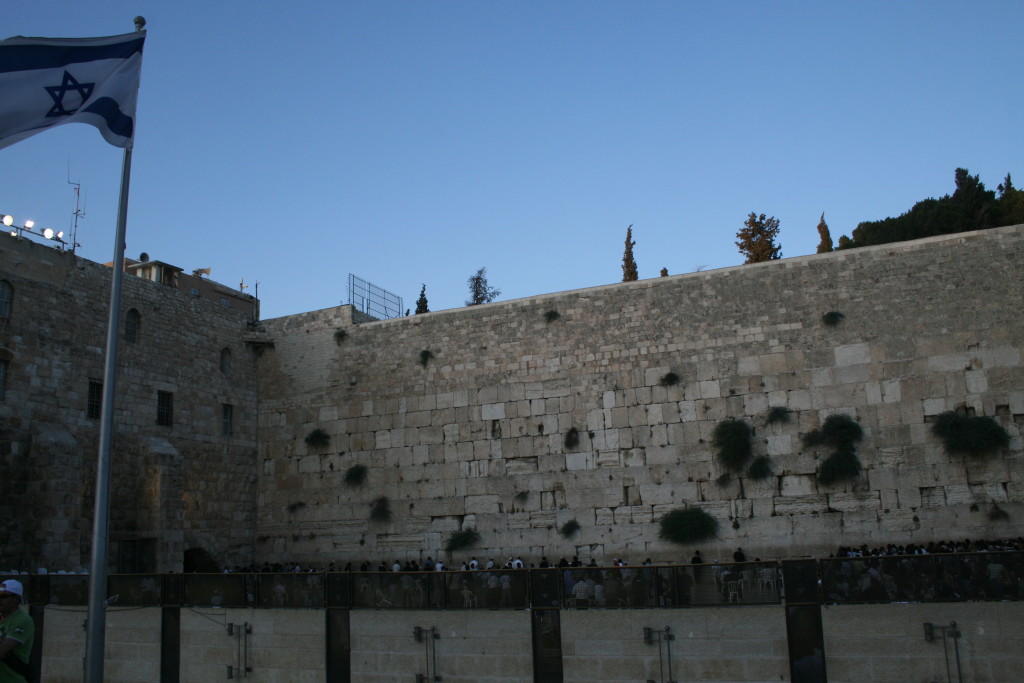
Amidst riotous violence in Jerusalem and the confluence of Passover, Easter and Ramadan in the same weekend, Israel is having to juggle more than just the interests of the three major religions. They are also working to balance security with religious freedom in a city holy to all three faiths.
That challenge was highlighted in Palestinian rock-throwing attacks on Israeli buses that injured civilians on Sunday and was central to discussions between Israeli Prime Minister Naftali Bennett and security officials that same day. Bennett “emphasized that efforts must continue to enable members of all faiths to celebrate their holidays in Jerusalem. He also stressed that offenders who violate the public order and try to harm the holiday routine must be dealt with,” according to a summary of the meeting published by his office.
In the wake of the rock assault on the buses, Bennett also ordered increased security for buses going to the Western Wall—a central holy site to Judaism—and the Old City, which also houses sites holy to Christianity and Islam. Per the press statement, the Palestinian attacks on the buses led to the hospitalization of a “number of passengers.”
According to the Israel Police Twitter feed, translated from Hebrew by Google, the incidents involved stones being thrown at buses traveling near the Old City. Per the post, “several buses were damaged” and four persons were arrested for the attacks on Sunday morning.
The violence came as the Israel Police reported more riots on the Temple Mount and Jerusalem’s Old City on Sunday, including the use of rock attacks and fireworks. Jerusalem District Commander Superintendent Doron Turgeman was quoted in a series of Twitter posts by the Israel Police, as translated by Google, noting some of the rioting occurred inside a mosque and “those rioters are harming, first of all, a large crowd of worshipers who come to the Temple Mount. Like last Friday, this morning the rioters damaged the mosque from the inside while firing fireworks.”
Turgeman continued, “We have acted, and will continue to do, to allow visits to the place while maintaining public order and freedom of worship. At the same time, we will act with determination and zero tolerance against rioters and lawbreakers who try to harm civilians or police in the holy places and elsewhere.”
The Israel Police, as of midday Sunday, said that 18 persons had been arrested for acts of violence since that morning.
Sunday’s conflict followed a contentious Friday on the Temple Mount—home to the Al-Aqsa Mosque, Islam’s third-holiest site—in which Palestinian rioters clashed with Israeli security forces, leading to hundreds arrested. The Palestinian Red Crescent said on Twitter that over 150 were injured. Israel’s Ministry of Foreign Affairs (MFA) indicated on Twitter that Friday’s violence was premeditated by Palestinians seeking conflict.
“Dozens of masked men carrying Hamas and PA flags marched into Al-Aqsa mosque in the early morning hours, chanting inciting messages and setting off fireworks. The crowd collected stones and large rocks, which were then hurled in the direction of the Mugrabi Gate,” tweeted the MFA, which noted that in response police “were forced to enter the grounds to disperse the crowd and remove the stones and rocks, in order to prevent further violence.”
However, while the violence rocked the holy site on Friday morning, that afternoon was different per follow-up tweets by the MFA.
Israel’s Foreign Ministry pointed out in one Twitter post that 26,000 persons were on the Al-Aqsa grounds after the riots had been dispersed, and another tweet noted thousands more Muslim worshippers were praying there on Saturday “alongside Jewish visitors to the compound.”
Said the MFA post, “Israel will not allow a handful of violent rioters to desecrate the site, and will ensure freedom of worship at Jerusalem’s holy places.”
Against that delicate balance of freedom and security, Bennett, in his comments, emphasized that protecting civilians is crucial—even as Israel also seeks to de-escalate tensions.
“The main goal is to ensure security for the citizens of Israel throughout the country. The security forces are continuing to receive a free hand from the political echelon for any measure to ensure security for the citizens of Israel,” said Bennett in his comments on Sunday.
“We are working to calm things down on the one hand and are taking vigorous action against violent individuals on the other. The security forces are ready for any scenario.”
(By Joshua Spurlock, www.themideastupdate.com, April 17, 2022)
